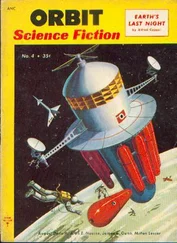Philip Dick - Time Out of Joint
Здесь есть возможность читать онлайн «Philip Dick - Time Out of Joint» весь текст электронной книги совершенно бесплатно (целиком полную версию без сокращений). В некоторых случаях можно слушать аудио, скачать через торрент в формате fb2 и присутствует краткое содержание. Жанр: Фантастика и фэнтези, на английском языке. Описание произведения, (предисловие) а так же отзывы посетителей доступны на портале библиотеки ЛибКат.
- Название:Time Out of Joint
- Автор:
- Жанр:
- Год:неизвестен
- ISBN:нет данных
- Рейтинг книги:5 / 5. Голосов: 1
-
Избранное:Добавить в избранное
- Отзывы:
-
Ваша оценка:
- 100
- 1
- 2
- 3
- 4
- 5
Time Out of Joint: краткое содержание, описание и аннотация
Предлагаем к чтению аннотацию, описание, краткое содержание или предисловие (зависит от того, что написал сам автор книги «Time Out of Joint»). Если вы не нашли необходимую информацию о книге — напишите в комментариях, мы постараемся отыскать её.
Time Out of Joint — читать онлайн бесплатно полную книгу (весь текст) целиком
Ниже представлен текст книги, разбитый по страницам. Система сохранения места последней прочитанной страницы, позволяет с удобством читать онлайн бесплатно книгу «Time Out of Joint», без необходимости каждый раз заново искать на чём Вы остановились. Поставьте закладку, и сможете в любой момент перейти на страницу, на которой закончили чтение.
Интервал:
Закладка:
_"Never be able to locate the owner," his father said. "Sure, keep it." He tousled the boy's hair._
_"But he didn't earn it," his mother said._
_"I found it," Ragle Gumm chanted, clutching the bill. "I figured out where it was; I knew it was there with all that other junk."_
_"Luck," his father said. "Now, I know fellows that can walk along and spot money on the pavement any day of the week. I never can. I bet I never found a dime in the gutter all my life."_
_"I can do that," Ragle Gumm chanted. "I can figure it out; I know how."_
_Later, his father relaxing on the couch in the living room, relating tales about World War Two, his part in the Pacific phase. His mother washing dishes in the kitchen. The tranquillity of the house..._
_"What are you going to do with your dollar?" his father asked._
_"Invest it," Ragle Gumm said. "So I'll have more."_
_"Big businessman, eh?" his father said. "Don't forget about corporation taxes."_
_"I'll have plenty left over," he said confidently, leaning back the way his father did, hands behind his head, elbows stuck out._
He savored this happiest of all moments of life.
"But why so inaccurate?" he asked Mrs. Keitelbein. "The Tucker car. It was a terrific car, but--"
Mrs. Keitelbein said, "You did ride in one, once."
"Yes," he said. "Or at least I think so. When I was a kid." And, at that point remembering, he could feel the presence of the car. "In Los Angeles," he said. "A friend of my dad's owned one of the prototypes."
"You see, that would explain it," she said.
"But it never was put into production. It never got beyond the hand-built stage."
"But you needed it," Mrs. Keitelbein said. "It was for you." Eagle Gumm said, "_Uncle Tom's Cabin_." It had seemed perfectly natural to him, at the time, when Vic had shown them all the brochure from the Book-of-the-Month Club. "That thing was written a century before my time. That's a really ancient book."
Picking up the magazine article, Mrs. Keitelbein held it out to him. "A childhood verity," she said. "Try to remember."
There, in the article, a line about the book. He had owned a copy, read the book over and over again. Battered yellow and black covers, charcoal-like illustrations as lurid as the book itself. Again he felt the weight of the thing in his hands, the dusty, rough pressure of the fabric and paper. Himself, off in the quiet and shadows of the yard, nose down, eyes fixed on the text. Keeping it with him in his room, rereading it because it was a stable element; it did not change. It gave him a sense of certainty. A sense that he could count on it to be there, exactly as it had always been. Even the crayon markings on the first page that he had made, his scrawled initials.
"Everything in terms of your requirements," Mrs. Keitelbein said. "What you needed, for your security and comfort. Why should it be accurate? If _Uncle Tom's Cabin_ was a necessity of your childhood, it was included."
Like a daydream, he thought. Keeping in the good. Excluding the undesirable.
"If radios infringed, then there were no radios," Mrs. Keitelbein said. "Or at least there weren't supposed to be."
But such a natural thing, he realized. They overlooked a radio every now and then. They kept forgetting that in the illusion the radio did not exist; they kept slipping up in just such trifles. Typical difficulty in maintaining daydreams, they failed to be consistent. Sitting at the table playing poker with us, Bill Black saw the crystal set and did not remember. It was too commonplace. It did not register; he had his mind on more important matters.
In her patient way, Mrs. Keitelbein went on, "So you recognize that they built for you -- and placed you in -- a safe, controlled, environment in which you could do your job without doubt or distractions. Or the realization that you were on the wrong side."
Vic said savagely, "The _wrong_ side? -- the side that was attacked!"
"In a civil war," Ragle said, "every side is wrong. It's hopeless to try to untangle it. Everyone is a victim."
In his lucid periods, before they had taken him from his office and established him in Old Town, he had evolved a plan. He had carefully assembled his notes and papers, packed his possessions, and prepared to leave. In a roundabout manner he had managed to make contact with a group of California lunatics at one of the concentration camps in the Midwest; doses of reorientation training had not yet affected them or their loyalties, and from them he had gotten instructions. He was to meet with a free, undetected lunatic in St. Louis, at a particular time, on a particular day. But he had never arrived there. The day before, they had picked up his contact, gotten the information from him. And that was that.
In the concentration camps, the captured lunatics underwent a systematic brainwashing, but of course it was never called that. This was education along new lines, a freeing of the individual from prejudices, malformed convictions, from neurotic obsessions and fixed ideas. It helped him mature. It was knowledge. He came forth a better man.
When Old Town had been built, the people who entered it and became part of its life underwent the technique used in the camps. They volunteered. All but Ragle Gumm. And on him the camp technique fastened the last elements of his withdrawal into the past.
_They made it work_, he realized. _I withdrew and they followed right along after me. They kept me in sight_.
Vic said, "You better think this out. It's a big thing, to go over to the other side."
"He already has made up his mind," Mrs. Keitelbein said. "He did that three years ago."
"I'm not going with you," Vic said.
"I know that," Ragle said.
"Are you going to walk out on Margo, your own sister?"
"Yes," he said.
"You're going to walk out on everybody."
"Yes," he said.
"So they can bomb us and kill us all."
"No," he said. Because after he had volunteered, left his private business and gone to work at Denver, he had learned something that the top officials of the government knew that had never been made public. It was a well-guarded secret. The lunatics, the colonists on Luna, had agreed to come to terms in the first weeks of the war. They insisted only that a sizable effort be maintained toward further colonization, and that lunatics not be subjected to punitive action after hostilities had ceased. Without Eagle Gumm the government at Denver would yield on those points. The threat of missile attacks would be enough. Public feeling against the Lunar colonists did not go that far; three years of fighting and suffering for both sides had made a difference.
Vic said, "You're a traitor." He stared at his brother-in-law. Except, Eagle thought, I'm not his brother-in-law. We're not related. I did not know him before Old Town.
Yes, he thought. I did know him. When I lived in Bend, Oregon. He operated a grocery store, there. I used to buy my fresh fruit and vegetables from him. He was always puttering about the potato bins in his white apron, smiling at the customers, worrying about spoilage. That was the extent to which we knew each other.
Nor have I got a sister.
But, he thought, I will consider them my family, because in the two years and a half at Old Town they have been a genuine family, along with Sammy. And June and Bill Black are my neighbors. I _am_ walking out on them, family and relatives, neighbors and friends. That is what civil war means. In a sense it's the most idealistic kind of war. The most heroic. It means the most sacrifices, the fewest practical advantages.
_I'm doing it because I know it is right_. It comes first, my duty. Everyone else, Bill Black and Victor Nielson and Margo and Lowery and Mrs. Keitelbein and Mrs. Kesselman -- they all have done their duty; they have been loyal to what they believe in. I intend to do the same.
Читать дальшеИнтервал:
Закладка:
Похожие книги на «Time Out of Joint»
Представляем Вашему вниманию похожие книги на «Time Out of Joint» списком для выбора. Мы отобрали схожую по названию и смыслу литературу в надежде предоставить читателям больше вариантов отыскать новые, интересные, ещё непрочитанные произведения.
Обсуждение, отзывы о книге «Time Out of Joint» и просто собственные мнения читателей. Оставьте ваши комментарии, напишите, что Вы думаете о произведении, его смысле или главных героях. Укажите что конкретно понравилось, а что нет, и почему Вы так считаете.









